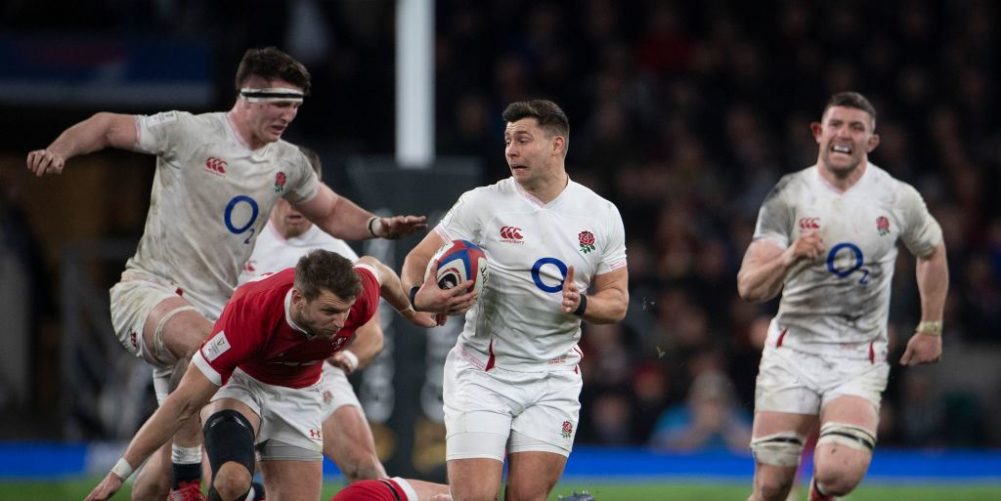With the easing of lockdown there are many thoughts of how to restart the game and with the new ideas that are emerging, seeking to reboot in a new and exciting money-making way.
The addition of some extra CVC money has sparked the PRO14 into life just when a lack of cash was looking to decimate a number of the regional teams.
The investment rumoured to be around £120m for a 28 per cent share of the business is being touted as a minority shareholding, similar to the Premiership deal.
Although both are correct, in terms of the total number of shares held by the member clubs in the Premiership and by the unions in the PRO14, CVC are now the biggest single shareholder in both organisations.
I was not surprised that the new deal was achieved, particularly at this time when all are desperate to find the money to survive, even if there is the probability that CVC may take out more than it gives, that will then be a problem for others to face in the future.
Taking a short-term view is not something that really affected the game until the advent of the professional era, when suddenly overnight vast amounts of money had to be found to pay players and administrators who previously gave their services for the honour of being a part of the game.
At club level, players were lucky if the club provided you with a match day shirt to wear, but you were expected to buy all other kit yourself.
At county level, when I played, you also had a tie given, but if you managed to get all the way and made it to England, you got a cap, just the one and the right to keep your shirt from each game.
The only exceptions to the single cap were players like Jason Leonard who was played 114 times for England and has a couple of commemorative caps for reaching 50 and then 100 games.
The decision by the RFU not to contract players directly was (in my opinion) a short-term view, as the union were just about to embark on a major stadium re-modelling programme and, at the time, didn’t think they could afford to contract players and fund the build.
I was on the RFU committee at the time and warned that failure to put in place central contracts would eventually end up costing the union more, which unfortunately for the game, was correct.
Players now get paid double for playing internationals with increased salary at club level and a match fee from the union.
A question that has always puzzled me is: why should the RFU pay such a high match fee given that players immediately get a raise in salary from their club employers when they are chosen for England?
Surely it should be an ‘either or’ situation, where clubs keep salaries more or less the same for all club players with the unions rewarding those players who get selected by paying the excessive match fee, or, like football, clubs increase wages of international players but the associations only pay a nominal match fee for international matches.
Footballers get between £500 and £1,500, depending on the result for playing an international, while rugby players, in a far smaller sport, get £25,000 per game plus a bonus for winning competitions.
At this time from a club, Premiership or province point of view, surely it make sense to have an agreement with unions that keeps player wages at an affordable level with the union topping up the international players’ earnings, particularly with the whole playing season and game structure currently being brought into question and whether or not the game of rugby as we know it will continue.
I have said many times that moving the Six Nations is a risk and it would appear that the power brokers of the Irish Rugby football Union agree with me.
In an open letter to the Irish Times they have questioned the merits of a home and away Six Nations and moving the competition to later on in the year.
They say: “Historically, the Six Nations ensures that rugby is sport’s main post-January pick-me-up, and commands the kind of attention it might not be guaranteed to achieve in another more competitive time of the year.” They have also argued against more internationals because of the possible effect on the club season and the damage it could do to growing participation in the game, citing the Rugby Championship‘s increase in quantity as a cause in reducing the quality of that competition.
There are also moves to change the way the game is played with different laws at the scrum, line-out and breakdown to reduce the amount of contact between players on the field.
If this happens, it will change the whole nature of the game and possibly the shape and size of players that currently make up the squads and all who participate in the game.
Less contest at the scrum, line-out and breakdowns would dramatically change the need for what could be described as traditional forwards, changing shapes and sizes to a more utilitarian type of player.
At a time when many players are either re-negotiating or out of contract, the uncertainty of the current and future nature of our game must be a concern for all.























